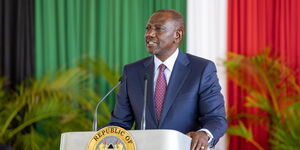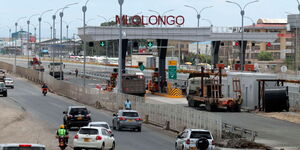The Central Bank of Kenya (CBK) has announced a major change to the country’s banking operations as part of its broader strategy to modernise and strengthen Kenya’s financial infrastructure.
Effective July 1, 2025, the Kenya Electronic Payment and Settlement System (KEPSS) working hours will be from 7am to 7pm on all business days. This is a considerable increase from the current 8:30am to 4:30pm schedule.
The new working hours, according to the CBK, follow extensive consultations with financial institutions and stakeholders. The extension is also in line with the National Payments Strategy 2022–2025, whose main goal is to modernise Kenya's financial systems to promote a stronger digital economy.
"This strategic enhancement is aimed at improving the efficiency, accessibility, and resilience of Kenya’s payments ecosystem," the monetary authority said.
"By enabling earlier initiation and later completion of large-value and time-sensitive payments, this move will support the country’s transition towards a 24/7 digital economy."
In its statement, the CBK also said the revised hours were designed to support faster and more efficient settlement of large-value and time-sensitive payments.
Launched in 2005, KEPSS is a system run by the CBK that helps banks and other financial institutions send large amounts of money to each other safely and efficiently.
The system is crucial in a country's financial landscape since it ensures the secure settlement of high-value transactions, which are also time-sensitive. KEPSS supports a string of activities, including interbank transfers, government payments, and corporate financial operations.
Following the revised hours, the CBK says the move will boost convenience and flexibility for financial institutions, which will effectively enhance their ability to manage cash flows and reduce operational risks.
CBK, in their statement, also emphasised that the extension of working hours mirrored the global trend where central banks are increasingly extending payment system hours, especially at a time when Kenya is positioning itself as a regional financial hub.
In October 2024, KEPSS transitioned to the ISO20022 Global Messaging Standard (“ISO20022 Standard”) in a move which the monetary authority said was meant to offer extra services to Kenyans but also provide solutions to challenges faced by Kenyans conducting large-value cross-border transactions.
The new standard was also slated to improve the interoperability of the interaction between local and international payment systems to streamline cross-border transactions and increase the ease of doing business globally.












